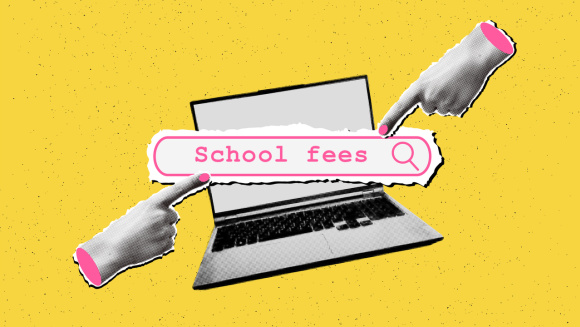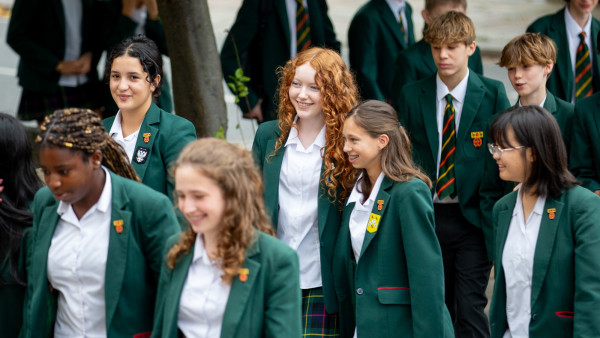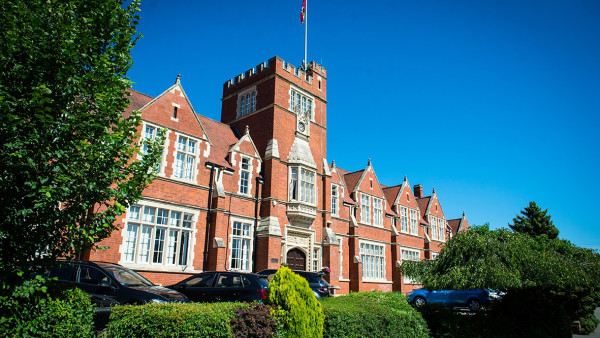The future of private school fees

What you need to know about school fees
Independent schools are expensive. Putting aside all the optional (and not-so-optional) extras – music lessons, trips, uniforms, sports kit etc – parents shelling out full fees are often paying sums well above the average UK annual income. Few families choosing private education can do so without a certain amount of belt-tightening and penny counting.
Apart from the Covid-19 disruption in 2020–21, school fees have gone up nearly every year for decades, typically by three to six per cent – faster than inflation. Fees barely rose in 2021, letting inflation pull ahead, but by 2023 they were climbing again, up an average of six per cent, says the Independent Schools Council (ISC). The addition of VAT during 2024–25 academic year bolstered these increases.
With parents seemingly still willing to pay, the trend for real-terms fee increases is only likely to continue. The most expensive schools are in or near London, where higher salaries and property assets can help foot the bill. But the ripple effect is nationwide, with schools across the UK targeting constant upgrades to buildings, facilities and technology.
How much does private school cost?
We’ve analysed independent day school fees to show what parents can expect to pay throughout their child’s education. Our calculations include the new VAT costs and assume annual increases of 4.5–5 per cent.
A family whose child starts reception in 2026 at a high-end London school could spend around £670,000 by the time A levels are completed. A school priced closer to the UK average comes in lower – about £410,000 over 14 years – but that’s still a major investment. No surprise, then, that many families opt to use both state and private sectors.
If you're looking for guidance on applying for financial support at private schools, our education consultants can support you through the process.
The most affordable private schools
Not all London day schools cost the same as Thomas’s Kensington (£34,635 at the top end) or Westminster School (£49,950 in sixth form). Some London schools are far more affordable – for example:
Blackheath High GDST Junior School – up to £19,974
St Benedict’s School, Ealing – up to £26,769
Beyond the capital, fees drop further:
BGS (Bristol Grammar School) Junior – up to £13,536
Kingsley Prep School, Devon – up to £15,945
Bolton School (Boys’ and Girls’ Divisions) – up to £15,036
Bablake School, Coventry – up to £19,248
Princethorpe College, Warwickshire – up to £18,597
The Grange School, Cheshire – up to £16,974
These are a few examples showing that while elite London schools and their considerable fees dominate the headlines, there are still relatively affordable independent options across the country.
How will VAT affect private school fees?
Historically, private schools – as education providers – were exempt from charging VAT on their fees. Most are also registered charities, meaning they received an 80 per cent discount on business rates (another type of tax).
However, the Labour government elected in 2024 argued that these ‘tax breaks’ unfairly favoured the private sector. Seen as a way to raise funds for the cash-strapped state education system, VAT is now charged on school fees at 20 per cent and the business rates discount removed.
Although some schools absorbed part of these new costs, many parents found their first 2025 invoice in January was 12-16 per cent higher than the previous term. When fees for the 2025-26 academic year were announced, most schools compounded the matter with further increases, this time closer to the annual rate of inflation (around three per cent).
It remains to be seen how schools will balance maintaining quality with keeping fees affordable for their existing families and future intakes. As the effects of VAT may take years to be fully felt, a possible knock-on is that schools have to reduce staff numbers, scale back extracurricular activities or trim bursary and scholarship budgets.
Is private school still worth the money?
In September 2022, we asked: Is private school still worth it? Such is demand from UK and overseas families, it appears that, despite price hikes, a British private school education remains attractive. In the summer of 2025, The Good Schools Guide conducted a survey of 2,000 parents representative of the UK population. Fifty per cent told us that they would choose private school for their children if they could afford to.
Melanie Sanderson, managing editor of The Good Schools Guide, advises parents to think carefully before committing:
‘Private schools don’t hold a monopoly on good grades and an academically able child with engaged parents is likely to succeed wherever they are educated. But independent schools still offer time, resources and a nurturing setting that builds confidence and talent. For parents, the longer school day fits working life, and avoiding the state school lottery will always appeal.’
Will private school fees keep rising?
As sure as death and taxes, school fees will continue to rise. But by how much? And can schools and parents manage these changes?
Melanie Sanderson believes that there may be a little relief down the line: ‘Schools tend to operate with tight margins; few are making large profits or adding much to their reserves. Everything that comes in goes straight back out again on salaries, maintenance, utilities and food. But schools know that constant fee increases above inflation will eventually price out more and more families.
The top tier of highly selective, expensive schools – particularly in London and the South East – will continue to play by their own rules. Elsewhere, though, schools must work hard not to lose touch with their traditional market. Honest conversations are needed with parents and the wider community so that schools can identify what really matters and what are simply ‘nice-to-haves’.
I suspect those schools that do the simple things well – small classes, academic focus and strong pastoral care – while keeping costs low and operating in a business-like fashion, have a secure future ahead. And the more schools that manage it, the more appealing that model of education will become.’
For our latest advice and insights into UK school fees, VAT and scholarships and bursaries, sign up to receive our newsletter
Featured in: Independent schools Scholarships & bursaries
Tags: Opinion Choosing a School Fees








